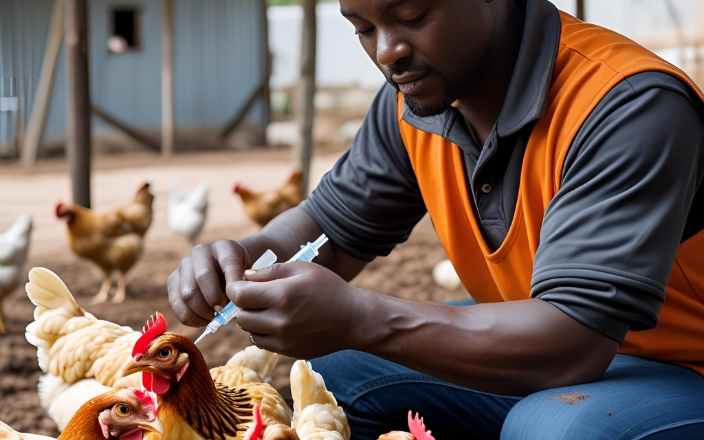South Africa’s poultry sector gears up for HPAI vaccination
A Historic Step in Disease Control
In a landmark move, South Africa has launched its first-ever mass vaccination campaign to combat Highly Pathogenic Avian Influenza (HPAI) in poultry. The initiative, announced in early June 2025, marks a critical shift in the country’s approach to managing avian diseases, aiming to protect both the domestic poultry industry and public health.
Government-Led, Science-Driven Strategy
The vaccination rollout is being led by the Department of Agriculture in collaboration with veterinary experts from the University of Pretoria and the Agricultural Research Council. According to Deputy Director-General Dipepeneneng Serage, the strategy is built on four pillars: controlled vaccine use, enhanced biosecurity, traceability of vaccinated flocks, and continuous surveillance.
Only officially registered vaccines are permitted, and farmers must comply with strict protocols. So far, three H5 vaccines have been approved, with an H7 vaccine in development. The government has also deployed 50 trained animal health technicians to assist with the campaign.
Targeting High-Risk Zones First
The initial phase of the vaccination campaign prioritizes high-risk areas and commercial poultry farms. These zones have been identified based on previous outbreaks and the density of poultry populations. The goal is to contain the virus quickly and prevent further culling, which has already caused significant economic losses in recent years.
Balancing Biosecurity and Trade
One of the key challenges facing the vaccination strategy is maintaining South Africa’s status as a poultry exporter. To address this, the government has emphasized traceability and transparency. All vaccinated flocks will be documented to reassure international trade partners and ensure compliance with global animal health standards.
Building Long-Term Resilience
Beyond the immediate response, the vaccination campaign is part of a broader effort to strengthen South Africa’s biosecurity infrastructure. Plans are underway to establish a national Biosecurity Council, integrating law enforcement, scientists, and agricultural stakeholders to manage future outbreaks more effectively.
Conclusion
South Africa’s proactive stance on avian influenza vaccination represents a major advancement in animal health management. By combining scientific rigor with coordinated government action, the country is not only protecting its poultry industry but also setting a precedent for disease control in the region.
Sources: Available upon request

